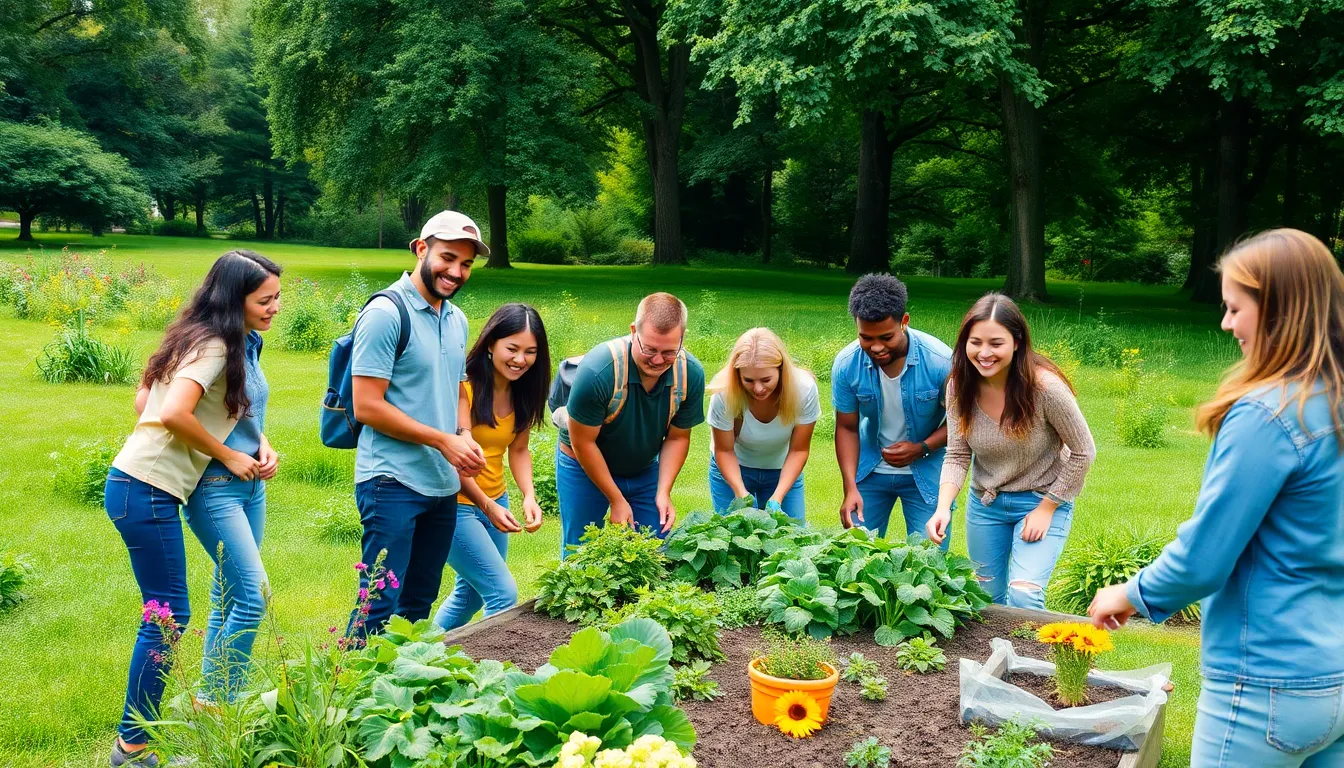Table of Contents
ToggleIn a world where plastic bags seem to multiply like rabbits and carbon footprints are bigger than some countries, sustainable living books are here to save the day. These literary gems not only offer practical tips but also serve up a hefty dose of inspiration for anyone looking to reduce their environmental impact. Who knew saving the planet could be so enlightening—and entertaining?
Overview of Sustainable Living Books
Sustainable living books play a crucial role in fostering awareness about environmental issues. These resources encompass a wide range of topics including reducing plastic use, minimizing carbon footprints, and promoting eco-friendly habits. Readers encounter practical tips, detailed guidelines, and inspiring stories that encourage effective changes in daily routines.
Examples include titles that focus on zero-waste lifestyles, organic gardening, and renewable energy solutions. In addition, many books provide step-by-step instructions on creating sustainable meals and reducing energy consumption in homes. Learning from authors with extensive knowledge in environmental science further enhances the credibility of these works.
A significant number of sustainable living books emphasize community involvement and grassroots activism. Several authors share personal experiences, making the content relatable and motivating. These narratives inspire individuals to connect with others who share similar sustainability goals.
Recommended reading lists often highlight influential books that have transformed perspectives on environmentalism. Popular titles may include “The Zero Waste Home” by Bea Johnson and “The Omnivore’s Dilemma” by Michael Pollan. Each text serves as a valuable tool for those committed to sustainable living practices.
Ultimately, the impact of sustainable living books extends beyond individual actions. By cultivating a deeper understanding of ecological issues, readers contribute to a broader movement towards a healthier planet. Engaging with these texts offers a path to not just personal growth, but collective change in society.
Benefits of Reading Sustainable Living Books

Reading sustainable living books enhances environmental awareness and equips individuals with useful skills for everyday situations. These books inspire changes that lead to more responsible lifestyles.
Environmental Awareness
Environmental awareness emerges as a primary benefit of reading sustainable living books. Engaging with these texts fosters understanding of pressing issues like climate change and resource depletion. Authors delve into topics such as biodiversity loss and ecosystem preservation, sparking curiosity and discussions around these crucial subjects. Readers gain insight into the interconnectedness of human actions and environmental consequences, leading to more conscious decision-making. Many authors provide compelling narratives that highlight the urgency of adopting sustainable practices. As individuals explore these themes, they cultivate a sense of responsibility towards the planet and become advocates for change within their communities.
Practical Tips for Everyday Life
Practical tips for everyday life form another significant advantage of reading sustainable living books. These texts offer actionable strategies for reducing waste and conserving resources. Readers discover methods for composting, upcycling, and reducing energy consumption through clear step-by-step instructions. Many authors share personal anecdotes that illustrate successful implementation of these tips in daily routines. As individuals apply these suggestions, they often see immediate benefits, such as cost savings and improved well-being. Books also cover topics like mindful consumption and responsible food choices, providing guidance for sustainable living. Ultimately, practical advice helps readers transition into more sustainable habits, creating lasting change.
Popular Sustainable Living Books to Explore
Exploring sustainable living books opens doors to practical insights. These titles provide valuable guidance for individuals aiming to live more sustainably.
Classic Titles
“Silent Spring” by Rachel Carson remains a foundational text in environmental literature. This book raises awareness about pesticide use and its harmful impacts. “The Ecology of Hope” by David Brower chronicles the connections between ecology and personal responsibility. “Your Money or Your Life” by Vicki Robin emphasizes the relationship between spending and ecological footprints. Each classic offers timeless perspectives encouraging readers to rethink their impact on the planet.
Recent Releases
“How to Give Up Plastic” by Will McCallum presents actionable steps for reducing plastic consumption. This guide helps individuals navigate alternatives to everyday plastic items. “The Zero-Waste Home” by Bea Johnson inspires readers to pursue a minimalist lifestyle through waste reduction. “The New Organic Grower” by Eliot Coleman explores sustainable farming practices for home gardeners. Each of these recent releases showcases innovative ideas for fostering sustainability in daily life.
How to Choose the Right Sustainable Living Book
Choosing the right sustainable living book requires thoughtful consideration. Readers should assess their current habits and how these books can support their goals.
Consider Your Lifestyle
Identify personal interests and current lifestyle choices before selecting a book. Individuals who enjoy cooking might prefer titles focused on organic gardening or plant-based recipes. Those interested in minimalism would benefit from books about decluttering and reducing waste. Evaluate the time commitment, as some books offer in-depth explorations while others provide quick tips. Readers should reflect on their long-term sustainability goals. Understanding specific challenges, like reducing plastic use or conserving energy, can help target the most relevant resources.
Explore Different Authors and Perspectives
Different authors bring unique approaches to sustainable living. Investigate influential figures in the field, such as Bea Johnson or Will McCallum, to observe varied insights. Engaging with diverse perspectives fosters a well-rounded understanding of sustainability. Consider exploring books written by environmental activists, scientists, or everyday individuals sharing their journeys. Readers can find both personal anecdotes and practical advice through these works. Each author’s voice may resonate differently, so selecting a mix can enrich one’s learning experience.
Sustainable living books serve as essential tools for anyone looking to make a meaningful impact on the environment. They not only provide practical advice but also inspire readers to adopt new habits that contribute to a healthier planet. By exploring various perspectives and actionable strategies, individuals can find guidance tailored to their unique lifestyles and interests.
As readers embrace the insights offered in these books, they often discover a deeper connection to the world around them. This journey toward sustainability fosters a sense of community and shared responsibility. Ultimately, engaging with sustainable living literature empowers individuals to take charge of their environmental footprint and inspires collective action for a brighter future.





